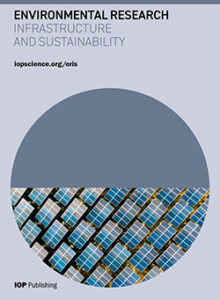ERIS特刊征稿|聚焦能源基础设施和系统的物理和自然威胁

特刊详情
客座编辑
- Christopher Chini,美国太平洋西北国家实验室
- Rebecca Peer,新西兰坎特伯雷大学
- Brian Tarroja,美国加利福尼亚大学
主题范围
We are particularly interested in papers that provide insight into the following topics:
- The dependence of energy system vulnerability to extreme weather events on the pathways chosen to construct future, low-carbon regional energy systems
- The effect of compounding physical and natural threats and propagating impacts on current and future energy systems
- Exploring what planning decisions can be made to both facilitate the low-carbon energy transition and maintain or improve energy system resilience against physical and natural threats
- Elucidating the primary drivers of energy system vulnerability in different regions of the world and the variability in preferred strategies to reduce these vulnerabilities
- Evaluating resilience decision-making of energy systems against social, economic, and environmental systems, including environmental justice
- Frameworks and methods for more robustly incorporating risks from physical and natural threats into regional decision-making for energy infrastructure transformation
投稿流程
特刊文章与ERIS期刊常规文章遵循相同的审稿流程和内容标准,并采用同样的投稿模式。
有关准备文章及投稿的详细信息,可以参阅IOPscience页面的作者指南。
作者可登入期刊主页进行在线投稿,先选择“文章类型”,然后在“选择特刊”的下拉框中选择“Focus on Physical and Natural Threats to Energy Infrastructure and Systems”。
投稿截止日期:2024年12月31日。
期刊介绍

- Environmental Research: Infrastructure and Sustainability(ERIS)是一本涵盖多学科的开放获取期刊,本期刊旨在发表针对各种规模和地理环境的基础建设及其相关系统所面临的各种挑战的研究,以及更广泛意义上的可持续性和持久性研究,包括环境、经济和社会因素等。我们欢迎包括定性、定量、实验性、理论及应用研究的所有方法学研究。
